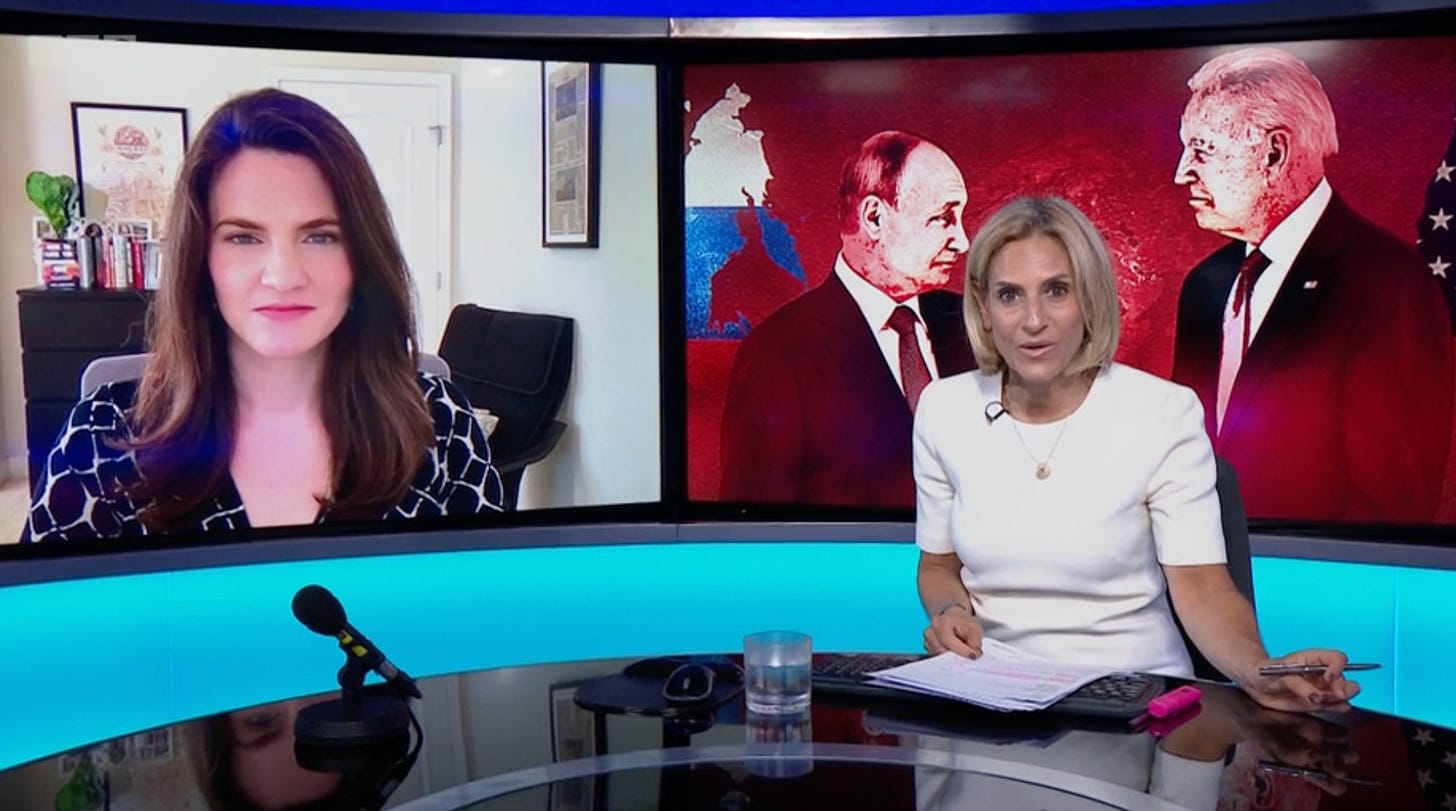Two years, eleven months, and one day ago, on July 16, 2018, I was in Glacier Bay, Alaska, while Presidents Trump and Putin were meeting in Helsinki, Finland. I was sullen and sulking that day. I’ve had notoriously terrible timing throughout my life. That trip was no exception. Producers were hounding me for TV and radio hits, and I had to turn the majority of them down; before COVID, most networks had a strong preference for you to appear in studio, not from your tiny stateroom with patchy internet on a cruise ship.
The day of the summit, Canadian Broadcasting Corporation decided to take their chances on me. I had a quick chat with the anchor just before the infamous Trump-Putin press conference began. The producer kept me on the line—video feed and all— for a post-presser analysis. As Trump contradicted the opinions of our intelligence community, discussed allowing the Russians to interrogate former US officials, and in general put on a nightmarish, un-American, grotesque display of authoritarian machismo in front of the world, my face betrayed my feelings about what I was watching.
“Ma’am? Are you okay?” the producer asked.
“Not exactly,” I told her. “This press conference is making me nauseous.”
The Biden-Putin Summit yesterday in Geneva was an entirely different spectacle. It was diplomatic, even cordial, and the two men walked away agreeing to return their Ambassadors to their posts and begin dialogues on “strategic stability” and cyber issues. Some have criticized Biden for organizing the meeting, but the President laid out that he wanted Putin to hear from him what America’s red lines are, and what the repercussions for Russia’s continued ignorance of the rules-based international order will be. The consequences if Russian opposition activist Alexey Navalny were to die in prison, the President said, would be devastating for Russia. If the Kremlin continues its election interference and ransomware attacks, the US will retaliate.
To me, the most interesting glimpse into the Biden administration’s policy on disinformation and Russia’s broader influence tactics was the President’s description of Russia looking “foolish” for pursuing such campaigns. It would continue to drive away investment and cooperation, he said, not to mention drive Mr. Putin, who cares very much about appearances, a little nuts.
Despite the summit going about as well as anyone hoped, as I told Emily Maitlis of the BBC’s Newsnight last night, my expectations for the future are still low. After all, why should we trust a nation which routinely rips up international agreements after it signs them? In that case, the future will depend on the solidarity of democracies in holding Russia to account in the court of public opinion. Watch here.
I also testified before the European Parliament’s Special Committee on “Foreign Interference in all Democratic Processes in the European Union, including Disinformation” earlier this week. My remarks on how education and culture can help us fight disinformation are here.




